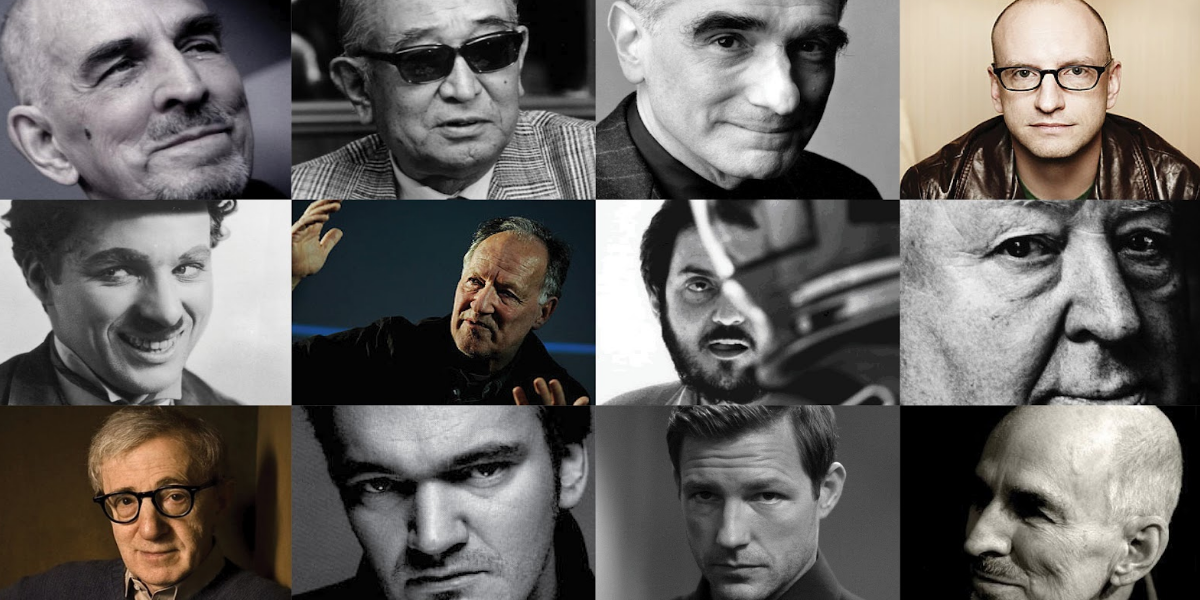
01-705/17
The Director is responsible for the general interpretation of the script and usually defines the limits for the other interpretive artists: actors, designers, technicians. The director most see to it that all the production elements are harmonized and subordinated to an overall interpretation. His or her influence is stronger during rehearsals that in the actual performance. Once the curtain opens before an audience, the director is powerless to control what then takes place.
On the other hand, screen directors have a good deal more control over the final product. They too dominate the preproduction activities, but unlike the stage director, the filmmaker controls virtually every aspect of the finished work as well. The degree of precision a film director can achieve is impossible on the stage, for movie directors can rephotograph people and objects until they get exactly what they want. As we have seen, films communicate primarily through moving images, and it’s the director who determines most of the visual elements: the choice of shots, angles, lighting effects, filters, optical effects, framing, composition, camera movements, and editing. Furthermore, the director usually authorizes the costume and set designs and the choice of locales.
The differences in control and precision can best be illustrated perhaps by examining their handling of the mise en scène. Stage directors are much more restricted: They must work within one stationary set per scene. All patterns of movement take place within this given area. Because this is a threedimensional space, they have the advantage of depth as well as breadth to work with. Through the use of platforms, they can also exploit height on the stage. In the cinema, the director converts three-dimensional space into a two-dimensional image of space. Even with deep-focus photography, «depth» is not literal, but the flat image has certain advantages. A camera can be placed virtually anywhere, so the film director is not confined to a stationary set with a given number of «walls». The eye-level long shot more or less corresponds to the theatrical proscenium arch. But in movies, the close-up also constitutes a given space-in effect a cinematic «roomlet»with iits own «walls» (the frame). Each shot, then, represents a new given space with different (and temporary) confines.
All about films and filmmaking.
Short Films & Future Films, INCORTO.com
Nuestra misión es aportarle herramientas a los creadores de cine de todo el mundo, para que exhiban y distribuyan su trabajo. INCORTO llega a cientos de espectadores y cinéfilos a través de INCORTO Film Festival y el Canal de Cine INCORTO, el cual dona parte de sus ganancias a los cineastas y realizadores.
Nuestra visión está dirigida por completo al cine. Queremos que el cine de autor se posicione con nuevas herramientas, que los cineastas reciban ganancias en respuesta al trabajo realizado y que los cinéfilos tengan un lugar en donde disfruten películas de todo el mundo y que nunca han visto.
Access to INCORTO SA. De CV. is granted for exhibition, distribution and producing purposes only.
Some of the content available through INCORTO may be governed by local, national, and/or international laws and regulations, and your use of such content is solely at your own risk. You agree to abide by all applicable laws and regulations, including intellectual property laws, in connection with your use of INCORTO. In particular, you certify that your use of any part of our content will be limited to noninfringing or fair use under copyright law.
In using the INCORTO site collections, and/or services, you further agree (a) not to violate anyone's rights of privacy (b) not to collect or store personal data about anyone, (c) not to infringe any copyright, trademark, patent, or other proprietary rights of any person, (d) not to transmit or facilitate the transmission of any content available.
INCORTO may modify this agreement from time to time, and your continued use of the collections and/or the site constitutes your acceptance of any and all modifications.
Because the content of the collections comes from around the world and from many different sectors, the collections may contain information that might be deemed offensive, disturbing, pornographic, racist, sexist, bizarre, misleading, fraudulent, or otherwise objectionable. INCORTO guarantee that the content available in the collections is accurate, complete, noninfringing, or legally accessible in your jurisdiction, and you agree that you are solely responsible for abiding by all laws and regulations that may be applicable to the viewing of the content. In addition, the collections are provided to you on an as-is and as-available basis. You agree that your use of the site and the collections is at your sole risk.
By Source Code